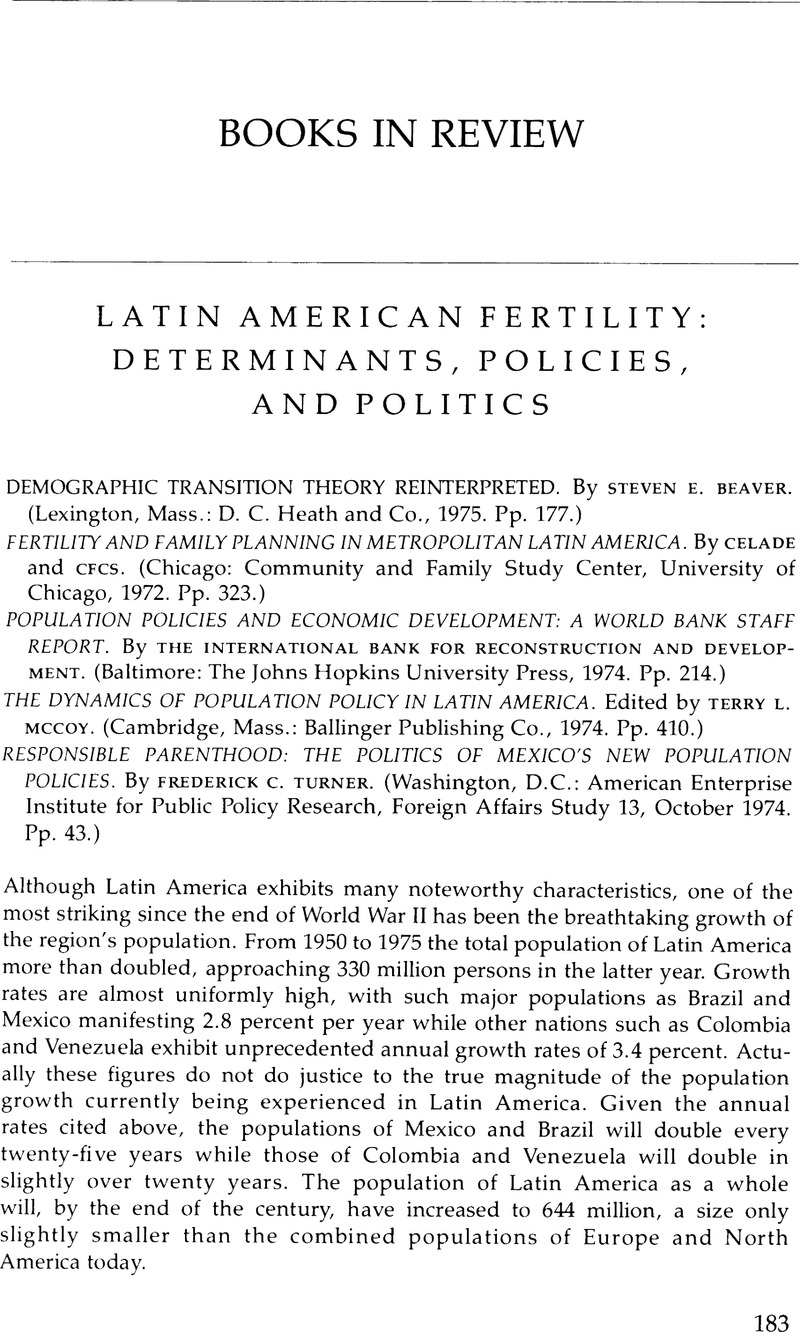No CrossRef data available.
Published online by Cambridge University Press: 24 October 2022

1. Eduardo E. Arriaga, “The Nature and Effects of Latin America's Non-Western Trend in Fertility,” Demography 7, no. 4 (November 1970):487.
2. See Nathaniel Leff, “Dependency Rates and Savings Rates,” American Economic Review 59, no. 5 (December 1969):886-95, and the associated comments in the American Economic Review 61, no. 3 (June 1971):469-80.
3. See Stephen Enke, “The Gains to India from Population Control,” Review of Economics and Statistics 42 (May (1960):175-81.
4. The actual author of the CELADE-CFSC volume is Donald J. Bogue, who acknowledges “responsibility for organizing the chapters, for directing the processing of data, for analyzing the results and for writing the manuscript.”
5. The cities are: Bogotá, Buenos Aires, Mexico City, Caracas, Panama City, Rio de Janeiro, San José (Costa Rica), and Quito and Guayaquil (Ecuador).
6. P. 244.
7. KAP stands for “Knowledge, Attitudes, and Practice” of family planning.
8. See John Cleland, “A Critique of KAP Studies and Some Suggestions for Their Improvement,” Studies in Family Planning 4, no. 2 (February 1973):42-47; Jack Reynolds, “Evaluation of Family Planning Program Performance: A Critical Review,” Demography 9, no. 2 (February 1972):69-86.